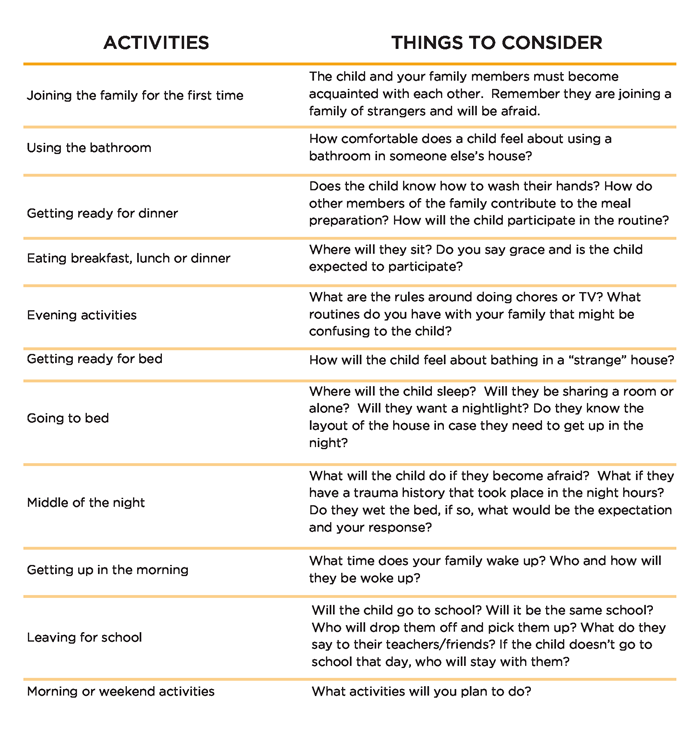By Denise Gibson
Think back to a time when you moved in with another person. Maybe it was your college roommate or romantic partner. You might have begun the experience with a complete stranger or someone you thought you knew well. There was excitement about this new journey in your life!
Then reality hit.
The person had strange habits or quirks you didn’t anticipate. Maybe they left their dirty socks on the floor or slurped their milk when eating cereal. These are the times when you had to find ways to create harmony and balance as you became more comfortable with each other.
In all relationships, each person brings their own habits, culture, values and traditions to the home. The same is true for children who will be joining your family through foster care or adoption.
Let’s talk about Cedrick, who is in foster care:
At 9 years old, Cedrick was placed in care after being physically abused by his stepfather. Throughout a year, there were problems between Cedrick’s mom and her second husband. The couple frequently fought, alerting the neighbors who made many police reports because of noise and suspected abuse. Cedrick was removed from his home after his teacher reported frequent bruises on his face and arms. Cedrick’s mother said she was afraid she could not protect him from her husband.
Think about some fears Cedrick might bring with him to the foster family.
He may have a fear of loud noises, fear of never seeing his mother again, or fear that he will be blamed for everything that happened. He also will bring some learned habits to your home. He may not realize that fighting is not a normal behavior or he may run and hide if he hears someone raise their voice. He may have hopes such as returning home quickly or fixing his mother’s marriage.
The following table depicts some typical events in a family home setting. The second column are some issues to consider to help ease some of the fears the child might be experiencing.

“First days” can be exciting and scary. Your family may be excited about having a child join your home, but it can be scary for everyone as well.
Remember that the child entering your home is experiencing crisis and loss. With some good planning you can make the transition easier on everyone. Take time to review these issues and discuss with your family members on how you can address any possible anxieties the child may bring with them to your home.
Adapted from Linda Bayless, et al. Deciding Together: A Program to Prepare Families for Fostering/ Adoption (Atlanta, Georgia: Child Welfare Institute, 1991 and 1992). Original program adapted from Model Approach to Partnerships in Parenting: Group Preparation and Selection of Foster and/or Adoptive Families, Fourth Edition (Atlanta, Georgia: Child Welfare Institute, 1991). Revised 2006.



